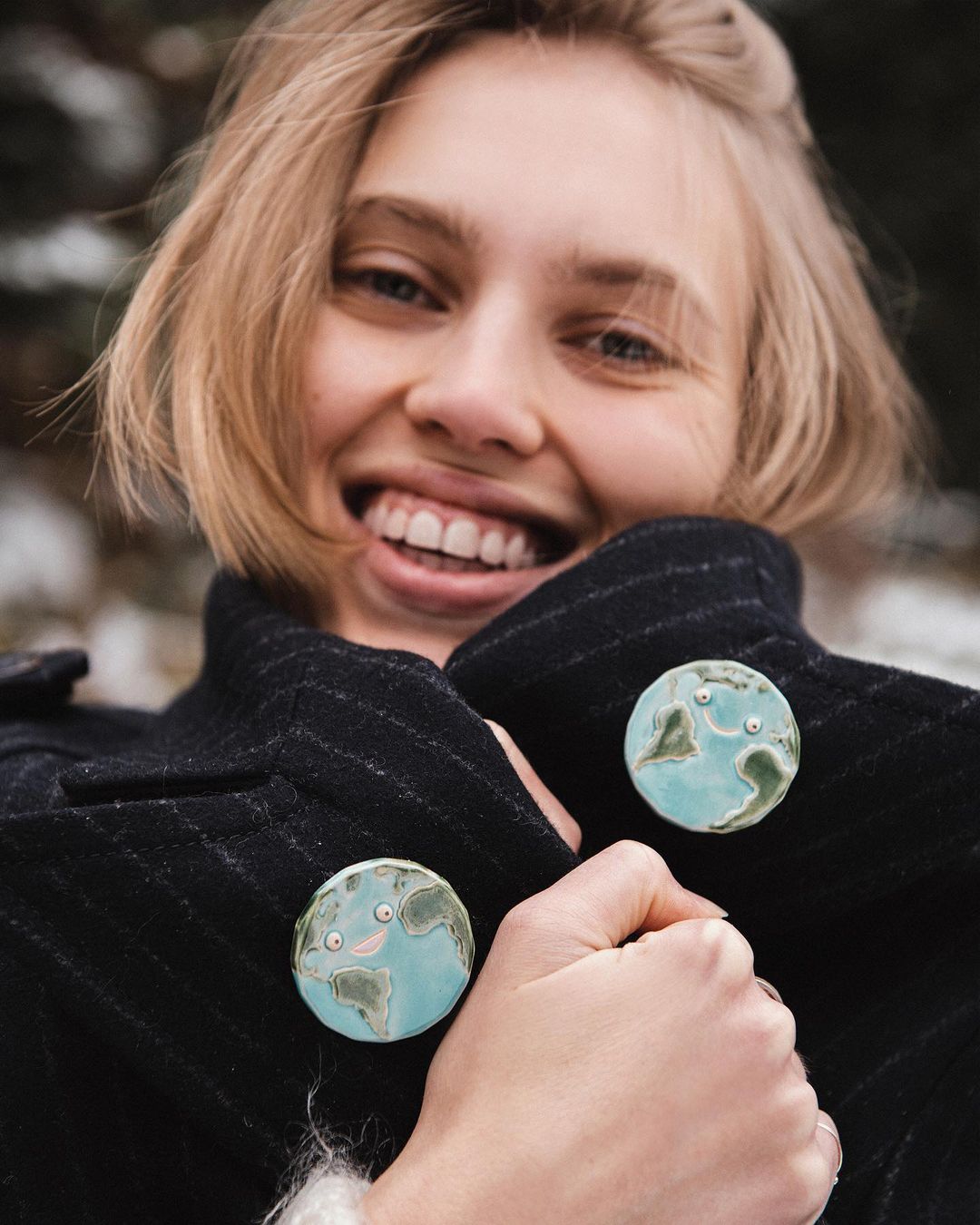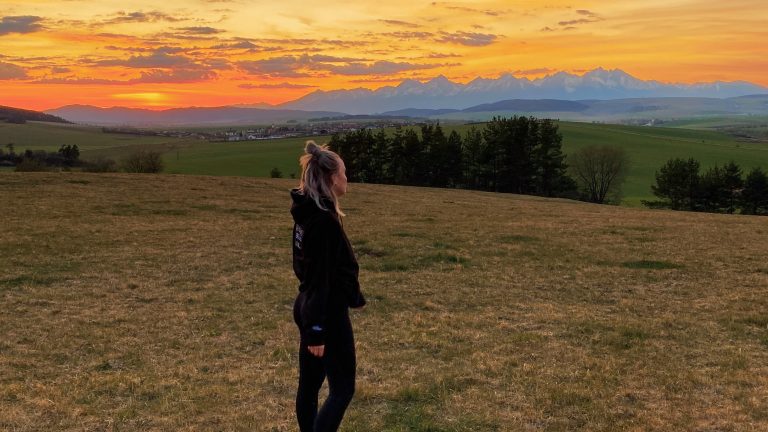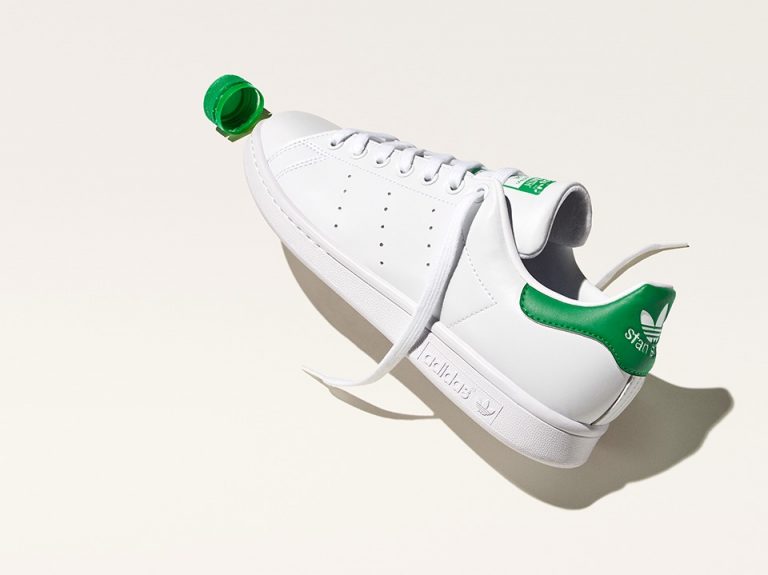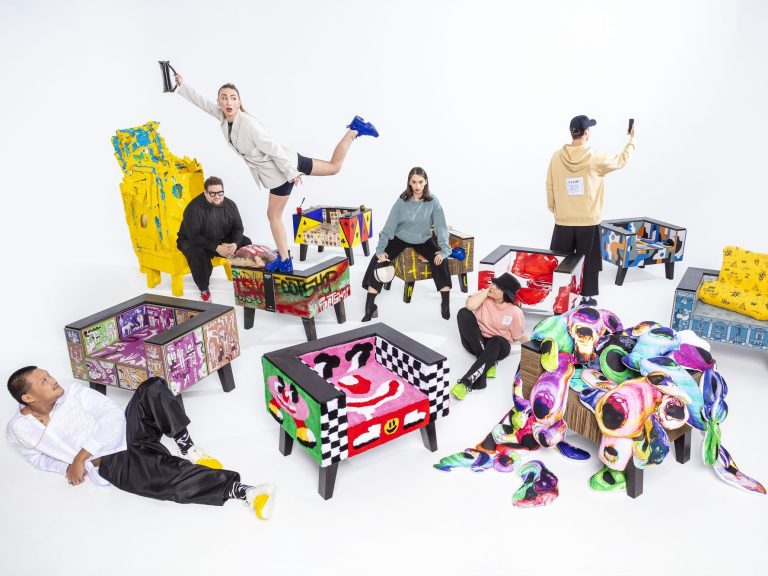Natália Pažická is an environmental activist, influencer, and founder of the initiative and non-profit organization #everyindividualmatters. The initiative addresses the issues of sustainability, especially the issue of sustainable fashion. She graduated from Fashion & Branding in Amsterdam, where she focused on the clothing industry’s sustainability aspect. She is also one of the six signatories who initiated the most successful Slovak online petition #klímaťapotrebuje.
When did your interest in the climate crisis start?
My interest in the climate crisis was a result of my interest in the problems within the fashion industry. I loved fashion, went shopping a lot, worked as a freelance stylist for various magazines, and worked as a model. Because of my modeling, I got many opportunities to travel to many beautiful places and see the clothing industry from a different point of view. My experience of a Chinese factory in Guangzhou, where I saw the terrible conditions in which people make our clothes, made me reconsider my approach to choosing clothes and overall consumerism in general. Through the clothing industry, I gradually became interested in other environmental and social issues, which is how I became interested in the climate crisis.
What did your life look like before your values were turned upside down?
I was a typical consumer. I was constantly filling my wardrobe with new and new pieces. Nothing was ever enough. I loved sales and discounts. I never even thought that my behavior could be harming someone or something, which was part of the problem. I didn’t have enough information, and when you don’t know anything, you can’t act. Now I know, so I’m trying to live responsibly. That is why I still remind people of how important it is to talk about these topics.
On your Instagram account, you mention you haven’t bought any piece of fast fashion in 4 years. Was this a result of the experience in the Chinese factory?
After that experience, I thought it only applied to cheap clothes, which here in Europe are only sold in some cheap markets. The decision to stop shopping in giant fast-fashion chains for good only came when I started school in Amsterdam (Amsterdam Fashion Institute). During the first week, they showed us the documentary The True Cost. After this document, I finally put all the information together and decided to change my behavior overnight.
Why did you decide to study Fashion and Branding at AMFI? How is studying fashion connected to sustainability?
The clothing industry is currently unsustainable in the long run. This means that its current pace will not be able to be sustained with population growth, increasing demand, and especially with the growth of the middle class. The school tried to show us the way the clothing industry should be heading to become sustainable. We have no issues with dressing 8 billion people. The only problems are how we make clothes, their quality and the excessive amounts in which we consume them.
How did you start the #everyindividualmatters initiative?
I’m a long-time admirer of activist Jane Goodall. I was at one of her lectures in Amsterdam, and to this day, I remember the tone with which she uttered the sentence – every individual matters. It suddenly made sense to me. I understood the need to start with myself. When I changed myself, so did my boyfriend, my family, and my friends. It’s like dominos. These words resonated with me, and I knew I wanted to do more, so I started sharing my thoughts and my way of life on Instagram and made a few Youtube videos that had a significant impact. Because of them, many people started following me on social media, to which I am currently devoting myself entirely.
Why do you consider individual change important?
It’s a start. I believe you can only change your surroundings and the world after you change yourself. Also, it’s the only form of change over which you have full control. Individual change is also a great foundation for the societyfor larger system changes. There are people for whom small individual change is not enough and who will have the capacity to deal with systemic change as well. It’s a process, a development, and everyone can go as far as they feel comfortable. Personally, I felt that individual change was not enough for me, and thus, if I have the opportunity to help and be a part of systemic change, I am more than open to it.
Are you strict with yourself? Is it essential for you to be 100% consistent in everything?
Not at all. For most people, that’s an unrealistic goal for people and brings more pressure and stress rather than substantial change and results. Start slowly, with small changes. Gradually, you get used to small changes, and they no longer feel like anything extra. After all, there’s nothing extraordinary about caring about our impact on our planet, our home. It is more than natural.
What was the hardest thing for you to change?
None of the changes were too uncomfortable. I gave up meat 7 years ago, even though I like it. But I decided to do so because I knew it wasn’t right, and the body doesn’t physiologically need meat. Not to mention the ethical aspect and its impact on the environment, people, and the climate. However, there are things I don’t know how to give up, like driving a car, for example. At the moment, because of the pandemic, I stopped taking public transport completely. When I travel by car, I try to travel together with my boyfriend. However, it’s not about starting with changes that would currently be uncomfortable to you. Focus first on something comfortable, to begin with, that will also benefit you.
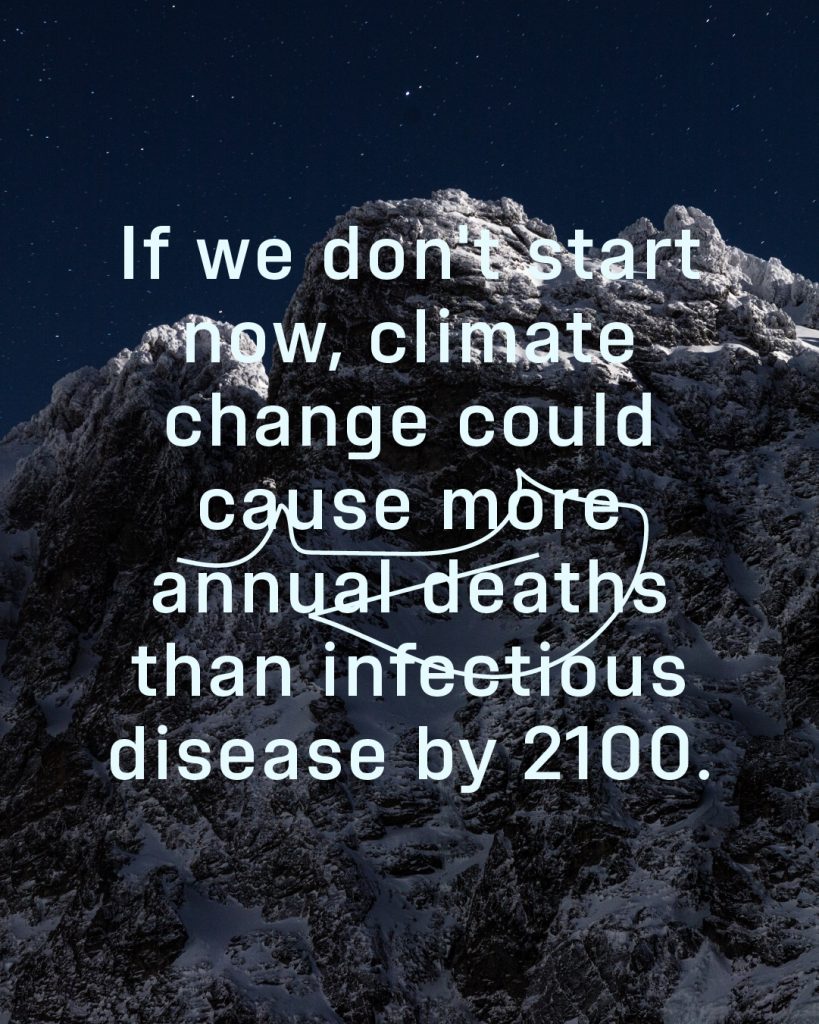
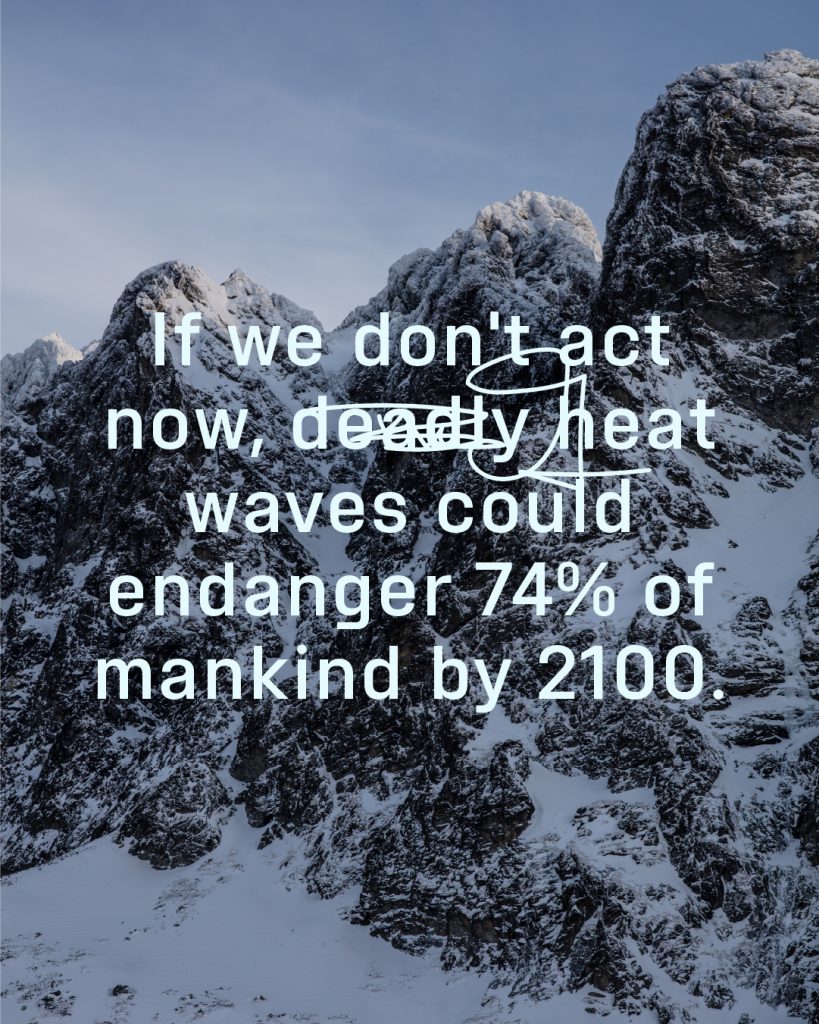
What is the biggest eco-hoax you have to refute the most often?
“I can’t change anything myself anyway.” It’s a privilege to say something like that because people in developing countries whose labor satisfies our consumerism cannot say a thing like that. This is sometimes called environmental racism when one country gets rich at the expense of the other. An increasing number of people have to migrate due to ecological disasters. So we shouldn’t ignore the situation because it will have an impact on us as well. Later, but it will.
What does a conscious life mean to you?
When a person is aware of his own decisions. It sounds obvious, but it isn’t. People often don’t think about what their purchases support and what their behavior causes. The problem is that these effects aren’t immediately apparent, so it feels like they don’t exist. And companies manage to hide it well. These decisions also affect us and our health. Whether it’s imitation foods or a new cotton T-shirt soaked with formaldehyde.
Is a more socially conscious life more expensive? How do you feel about it?
It’s not more expensive for me. Everybody can choose. For example, there are expensive sustainable fashion brands, but also some affordable ones. There are all kinds of household gadgets that you can but don’t have to buy. There are brands of natural cosmetics that are cheaper and also more expensive. Sustainability is not about money. You can live a healthier, more conscious life in any class if you want to.
- KishKash: I want to set up a museum dedicated to contemporary culture - 23. 3. 2022
- Shlømo: Nowadays, youth wants to feel the 90’s freedom rave vibe - 4. 1. 2022
- FTSHP Fit w/ Blanka & Mika - 16. 12. 2021
